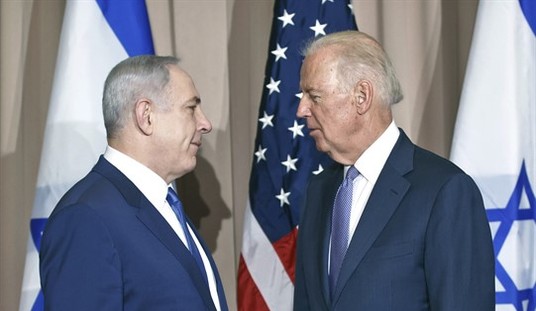Israeli defense officials are now reported as saying that, under the pressure of repeated Israeli airstrikes, Iran—which has been involved in the fighting in Syria since 2011—is starting to pack up and leave.
Its forces, the anonymous officials say, are “pulling out of Syria and closing military bases there.” That news comes on the heels of two more reported strikes on Monday night—and no less than 14 since April 10.
One of the Israeli attacks on Monday night hit militia bases in the Deir Azzor region of eastern Syria and, according to the UK-based, anti-Assad-regime Syrian Observatory for Human Rights, “killed at least 14 Iranian fighters and allied militiamen.”
Another, in northern Syria near Aleppo, was said to hit Iran-linked weapons depots “adjacent” to Syrian “defense labs.” Or—as other reports have it—the attack struck the labs themselves, which are centers for producing chemical and biological weapons.
Israel has been raiding hundreds, if not thousands, of Iranian, Syrian, Hezbollah, and foreign-militia targets in Syria since the start of the civil war in 2011, hitting arms depots, missile batteries, outposts along the Syrian-Israeli border, and much else. Since April, though, the pace has picked up to a possibly unprecedented level.
As Israeli Defense Minister Naftali Bennett said on Sunday: “We are determined, more determined [than Iran], and I will tell you why—for Iran, Syria is an adventure 1,000 miles from home, but for us it is life…. We will not give up nor allow the establishment of a forward Iranian base in Syria.”
That has been Israel’s policy all along—but why the recent uptick in airstrikes, to the point that—for the first time—it’s being said that Iran has finally had enough and is starting to go home?
Amos Harel, a military analyst for Israel’s Haaretz daily, attributes it to several factors—and particularly the U.S. assassination on January 3 of Qasem Soleimani, who was head of the Quds Force of Iran’s Revolutionary Guards Corps.
Harel says Iran’s entrenchment in Syria and aid to Hezbollah were Soleimani’s “flagship project,” and “in recent years, the greater Soleimani’s influence around the Middle East became, the more his efforts to smuggle arms to Hezbollah and build bases in Syria increased. Soleimani evidently insisted on continuing this despite Israel’s airstrikes.”
His replacement, Gen. Esmail Ghaani, however, “discovered that his predecessor’s shoes were a bit too big for him. Ghaani doesn’t share Soleimani’s superstar status. He’s having trouble imbuing the ranks with a fighting spirit, even if we take into account the pressure Iran and Hezbollah have been under lately.”
And that pressure, of course, has been huge. For Iran it includes intensifying U.S. sanctions, a coronavirus crisis that is widely assumed to have exacted far more than the 6,300 deaths reported so far, and plunging oil prices as the world economy goes into a tailspin.
Then there’s the fact that neither of Iran’s erstwhile allies in the Syrian civil war—that is, neither Russia nor Syria itself—particularly wants Iran to stay on Syrian soil.
For Syrian President Bashar Assad, Iran has outlived its usefulness. Although it helped Syria significantly during the war, its lingering presence in Syria now means constant Israeli airstrikes, including on Syrian missile batteries, that are the last thing Assad needs as he tries to rehabilitate his devastated country.
And as for Russia, it hopes to consolidate its own economic and strategic interests as Syria’s patron—and sees Iran as little more than an unwelcome competitor.
If, then, the above-mentioned Israeli officials are right and Iran has decided it’s had enough, it will be a great Israeli victory—and to some extent an Israeli-U.S. victory—in the fight against the Iranian axis of territorial expansion and war. Or, even if the claims are premature and Iran still wants to tough it out, it will find that it’s playing the losing hand.








Join the conversation as a VIP Member